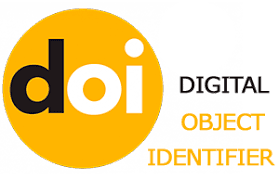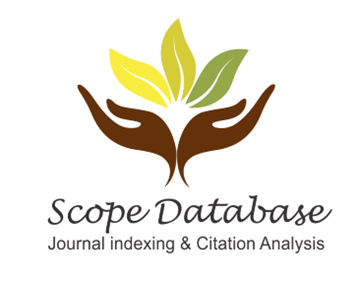MONITORAMENTO E AVALIAÇÃO DE SISTEMAS DE PRONTUÁRIO ELETRÔNICO EM HOSPITAIS PÚBLICOS E PRIVADOS DA REGIÃO DE ETHEKWINI, KWAZULU NATAL
DOI:
https://doi.org/10.47820/jht.v2i4.45Palavras-chave:
Monitoramento, Avaliação, Gestão da Mudança, RES, hospital público, hospital privadoResumo
O monitoramento e a avaliação do sistema de registros eletrônicos de saúde é um dos aspectos mais essenciais para avaliar o impacto da utilização da tecnologia no setor da saúde. O estudo examinou como os hospitais monitoraram e avaliaram a implementação e operação de sistemas de EHR em KwaZulu Natal, África do Sul. De acordo com a Estratégia Digital Nacional para a África do Sul (2019-2024:26), não há um processo definido detalhando o plano de monitoramento e avaliação em saúde pública e privada; O monitoramento e a avaliação ainda estão sendo desenvolvidos, concentrando-se nas ações necessárias para o cumprimento dos marcos estratégicos de intervenção. O estudo adotou o Leading Change Model (LCM) em integração com o Technology Acceptance Model (TAM). Os modelos foram adotados no estudo para avaliar o monitoramento e a avaliação na implantação e operação de sistemas de prontuário eletrônico nos hospitais públicos e privados da Área eThekwini. Utilizou-se o estudo transversal e o desenho qualitativo de estudo de caso para comparar o monitoramento e a avaliação da implantação de sistemas de prontuário eletrônico em hospitais públicos e privados. A população deste estudo é composta por três grupos, ou estratos. O primeiro grupo é composto por pessoal de gerenciamento de registros, administradores de pacientes e funcionários de arquivamento ou de enfermaria que lidam principalmente com a administração hospitalar. Em termos de monitoramento da produtividade, ambos os hospitais monitoraram a eficiência dos usuários na utilização do sistema, mas não houve uma estratégia adequada documentada.
Downloads
Referências
Acquah-Swanzy, M., 2015. Evaluating electronic health record systems in Ghana: the case of Effia Nkwanta regional hospital (Master's thesis, UiT Norges arktiske universitet).
Antwi, M. and Kale, M., 2014. Change management in healthcare: literature review. Monieson Centre for Business Research in Healthcare, Queen’s University, Ottawa, Ontario: Canadian Electronic Library. Retrieved 22 April 2023 from https://www.worldcat.org/title/change-management-in-healthcare-literature-review/oclc/905858789
Berhe, M., Tadesse, K., Berhe, G., & Gebretsadik, T. (2017). Evaluation of Electronic Medical Record Implementation from Users’ Perspectives in Ayder Referral Hospital Ethiopia. J Health Med Informat, 8(249). DOI: https://doi.org/10.4172/2157-7420.1000249
Boonstra, A., Versluis, A., & Vos, J.F. (2014). Implementing electronic health records in hospitals: a systematic literature review. BMC health services research, 14(1). Retrieved October 18, 2022 from https://bmchealthservres.biomedcentral.com/track/pdf/10.1186/1472-6963-14-370. DOI: https://doi.org/10.1186/1472-6963-14-370
Cherry, B., & Carpenter, K. (2011). Evaluating the effectiveness of electronic medical records in a long-term care facility using process analysis. Journal of Healthcare Engineering, 2(1), 75-86. DOI: https://doi.org/10.1260/2040-2295.2.1.75
Department of Health (2012) eHealth Strategy South Africa. Retrieved March 15, 2023 from https://www.health-e.org.za/wp-content/uploads/2014/08/South-Africa-eHealth-Strategy-2012-2017
Eastern Cape Province in South Africa. Master’s thesis. University of Fort Hare.
Erasmus, L.D. and Van Der Walt, T.I.A.A.N., 2015. Electronic medical records system user acceptance. IAMOT 2015 Conference Proceedings.
eThekwini Municipality Integrated Development Plan (2017). Retrieved March 14 2023 from https://www.durban.gov.za/pages/government/documents?d=Integrated%20Development%20Plans%20IDP%20-%20eThekwini%20Municipality
Falchook, A.D., Tracton, G., Stravers, L., Fleming, M., Reeve, B.B., Basch, E.M. and Chera, B.S.2015. Use of mobile device technology to collect patient-reported symptoms during radiotherapy for head and neck cancer: A prospective feasibility study. Journal of Critical Oncology, 22(13) suppl. Retrieved 30 March 30 2023). From https://ascopubs.org/doi/abs/10.1200/jco.2015.33.15_suppl.9599
Gabbay, J. and Le May, A., 2010. Practice-based evidence for healthcare: clinical mindlines. Routledge. DOI: https://doi.org/10.4324/9780203839973
Hazazi, A. and Wilson, A., 2021. Leveraging electronic health records to improve management of noncommunicable diseases at primary healthcare centres in Saudi Arabia: a qualitative study. BMC Family Practice, 22(1), p.106. DOI: https://doi.org/10.1186/s12875-021-01456-2
Health Design Authority (2012) Electronic Medical Record Evaluation Toolsand EMR Core Report. Authorised by the Victoria Government, Melbourne
International Records Management Trust (IRMT). 2009. Understanding the context of electronic records management. London: International Records Management Trust.
Kalusopa, T. (2011). The Challenges of Utilising Information and Communication Technologies (ICT’s) for the small-scale farmer in Zambian. IN: Library Tech, 23 (3) 414-424. DOI: https://doi.org/10.1108/07378830510621810
Katsande, T., 2014. Electronic medical records: an empirical study of South African health workers' attitudes, use and perceptions of impacts (Doctoral dissertation).
Katuu, S.A. (2015). Managing records in South African public health care institutions: A critical analysis, South Africa. DOI: https://doi.org/10.17234/INFUTURE.2015.16
Luthuli, L. P. (2017). Medical records management practices in public and private hospitals in Umhlathuze Area, South Africa
Malakoane, B., Heunis, J.C., Chikobvu, P., Kigozi, N.G. and Kruger, W.H., 2022. Improving public health sector service delivery in the Free State, South Africa: development of a provincial intervention model. BMC Health Services Research, 22(1), p.486. DOI: https://doi.org/10.1186/s12913-022-07777-x
Maphumulo, W.T. and Bhengu, B.R., 2019. Challenges of quality improvement in the healthcare of South Africa post-apartheid: A critical review. Curationis, 42(1), pp.1-9. DOI: https://doi.org/10.4102/curationis.v42i1.1901
Martin, W., & Voynov, S. (2014). Electronic health records and change management. International Journal of Computer and Information Technology, 3(3).
Marutha, N.S., & Ngulube, P. (2012). Electronic records management in the public health sector of the Limpopo province in South Africa. Journal of the South African Society of Archivists, 45, 39-67.
Moomba, K. (2017). Perceptions and experiences of health care workers on the use of electronic medical records at two health centres in Livingstone, Zambia. Retrieved September 21, 2022 from http://etd.uwc.ac.za/bitstream/handle/11394/5683/moomba_mcom_2017.pdf?sequence=1&isAllowed=y
Msomi, M. 2020. Change management in the implementation of electronic health records systems in public and private hospitals in the eThekwini area, South Africa. Masters thesis. University of Zululand.
National Department of Health. National digital health strategy 2019-2024. Retrieved April 20, 2023 from http://www.health.gov.za/index.php/2014-08-15-12-5426?download=3651: nationaldigital-health-strategy-for-south-africa-2019-2024
Pryor, J. and Crossouard, B., 2008. A socio‐cultural theorisation of formative assessment. Oxford review of Education, 34(1), pp.1-20. DOI: https://doi.org/10.1080/03054980701476386
Pyrene, M.B. 2015. The management of records for healthcare service delivery at the Victoria Public hospital in the
Rensburg, R. (2021). Healthcare in South Africa: how inequity is contributing to inefficiency. Wits University of Witwatersrand and Johannesburg. Retrieved June 12, 2023, from https://www.wits.ac.za/news/latest-news/opinion/2021/2021-07/healthcare-in-south-africa-how-inequity-is-contributing-to-inefficiency.html
Salleh, M.I.M., Abdullah, R. and Zakaria, N., 2021. Evaluating the effects of electronic health records system adoption on the performance of Malaysian health care providers. BMC medical informatics and decision making, 21(1), pp.1-13. DOI: https://doi.org/10.1186/s12911-021-01447-4
Thomas, S. (2016). An analysis of the adoption of electronic health records in primary healthcare, Gordon Institution of Business Science: University of Pretoria
Tubaishat, A., 2017. Evaluation of electronic health record implementation in hospitals. CIN: Computers, Informatics, Nursing, 35(7), pp.364-372. DOI: https://doi.org/10.1097/CIN.0000000000000328
World Health Organisation (2018). Regional Action Framework on Improving Hospital Planning and Management in the Western Pacific. Retrieved March 20, 2023 from https://iris.wpro.who.int/bitstream/handle/10665.1/14248/WPR-RC069-09-Hospital-Ann-2018-en.pdf
Zheng, K., Ratwani, R.M. and Adler-Milstein, J., 2020. Studying workflow and workarounds in electronic health record–supported work to improve health system performance. Annals of internal medicine, 172(11_Supplement), pp.S116-S122. DOI: https://doi.org/10.7326/M19-0871
Downloads
Publicado
Como Citar
Licença
Copyright (c) 2023 Revista Saúde e Tecnologia - JHT

Este trabalho está licenciado sob uma licença Creative Commons Attribution 4.0 International License.
Os direitos autorais dos artigos publicados pertecem à JHT, e seguem o padrão Creative Commons (CC BY 4.0), permitindo a cópia ou reprodução, desde que cite a fonte e respeite os direitos dos autores e contenham menção aos mesmos nos créditos. Toda e qualquer obra publicada na revista, seu conteúdo é de responsabilidade dos autores, cabendo a RECIMA21 apenas ser o veículo de divulgação, seguindo os padrões nacionais e internacionais de publicação.































